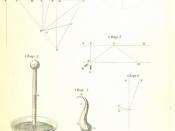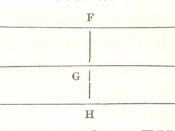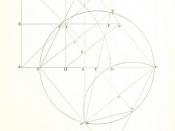The absolutist characteristics that a Hobbesian state embodies, is fundamentally due to the pessimistic nature that Hobbes' takes of man in a state where he is not subjected to any external authority. Unlike Locke, Hobbes sees man as centres of appetites rather than of rights and duties. The Hobbesian man relentlessly pursues his own desires, whereas the Lockean man pauses to think what effects his actions will have on others. The Hobbesian society therefore requires greater constraints to be placed on its subjects because the act of not doing so would invite far worse results.
In Elements of Law and again in Leviathan, Hobbes rejected the widely held notion by other philosophers in assuming that a universal human good existed and attempting to articulate what it consisted of. Hobbes believed that the pursuit of a universal human good proved to be an illusionary basis for human society; "there is no such Finis Ultimis (utmost ayme,) nor Summum Bonum (Greatest Good,) as is spoken of in the Books of the old Morall Philosophers."
Reason for Hobbes has no real content either for it is "nothing but the Reckoning ... of the Consequences of generall names agreed upon, for the marking and signifying of our thoughts" As a result, reason is not able to motivate man to direct his actions in a particular way, only a passion, a desire or an aversion, can motivate us.
Hobbes did however agree that all men had placed one desire higher than any others; the desire to avoid death. Since the onset of death would mean that Man's other desires would not be satisfied, the avoidance of death must be sought by all rational men: "all men aggress on this, that Peace is Good, and therefore also the way, or means of Peace." It...


